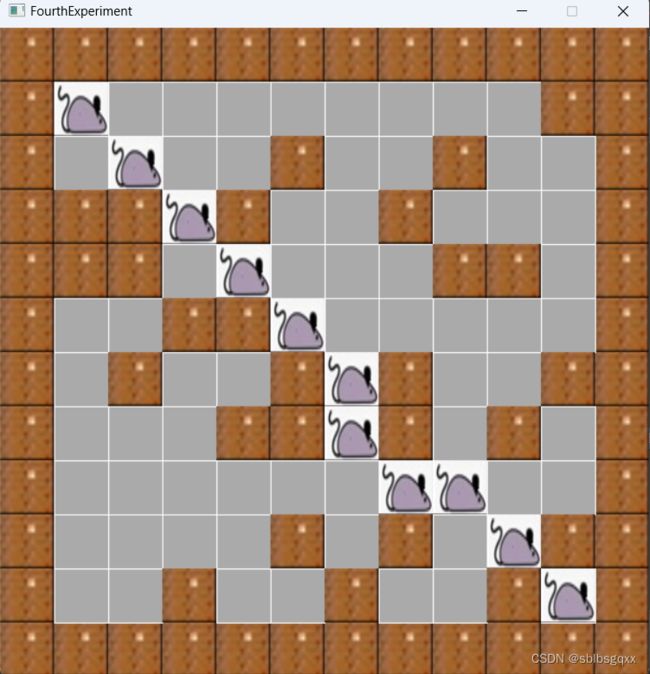数据结构实验之迷宫
该程序使用广度优先遍历、easyX界面化显示。
#define OK 1
#define TRUE 1
#define FALSE 0
#define ERROR 0
#define OVERFLOW -1
#define STACK_INIT_SIZE 100
#define STACKINCREMENT 10
#define QUEUE_INIT_SIZE 100
#define QUEUEINCREMENT 10
#define MAXQSIZE 10001
#define CELL_SIZE 50
struct ElemType
{
int i;
int j;
int pre;
};
typedef struct ElemType QElemType;
typedef struct ElemType SElemType;
typedef int Status;
#include "stack.h"
#include "queue.h"
#include 